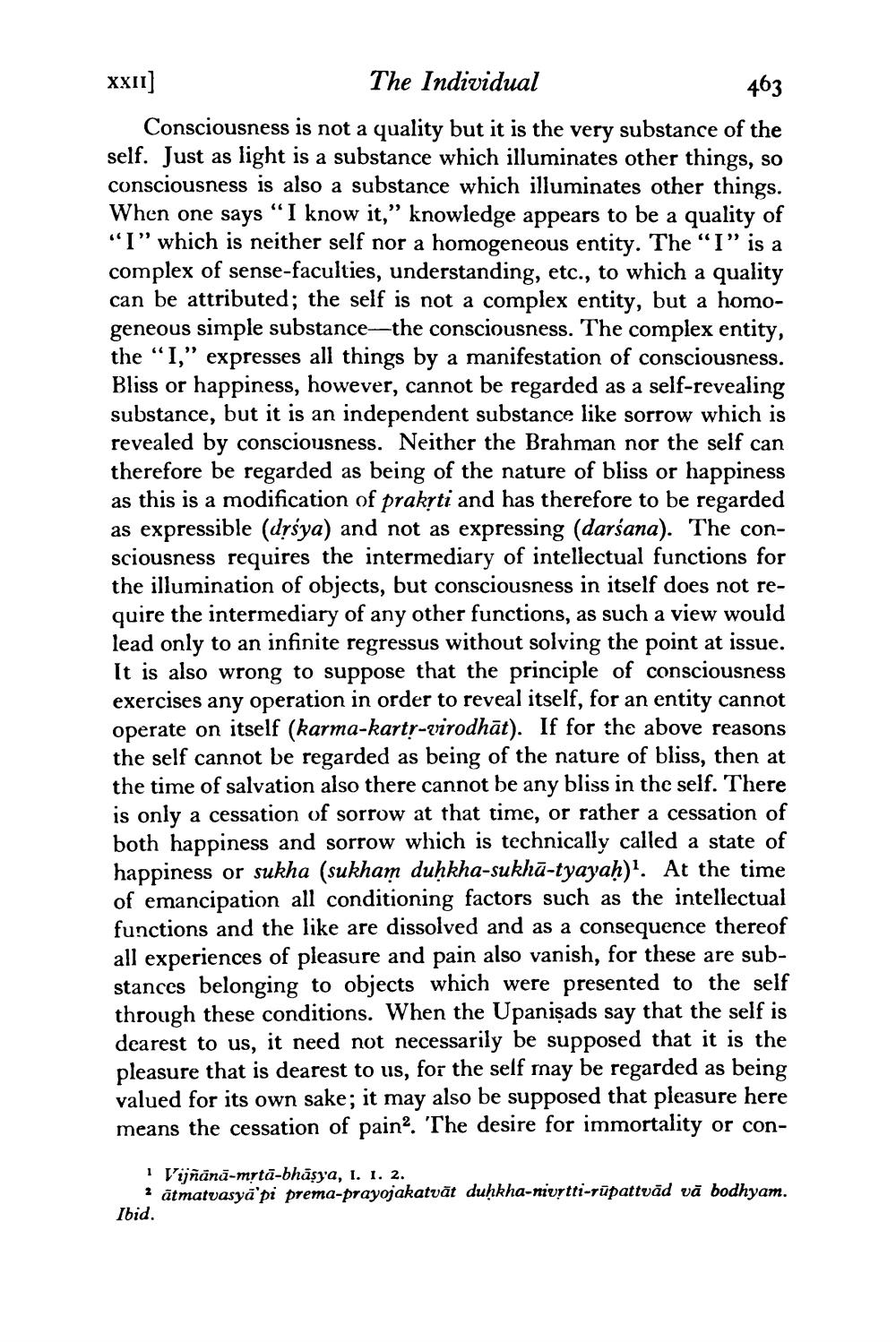________________
XXII] The Individual
463 Consciousness is not a quality but it is the very substance of the self. Just as light is a substance which illuminates other things, so consciousness is also a substance which illuminates other things. When one says “I know it,” knowledge appears to be a quality of “I” which is neither self nor a homogeneous entity. The “I” is a complex of sense-faculties, understanding, etc., to which a quality can be attributed; the self is not a complex entity, but a homogeneous simple substance—the consciousness. The complex entity, the “I," expresses all things by a manifestation of consciousness. Bliss or happiness, however, cannot be regarded as a self-revealing substance, but it is an independent substance like sorrow which is revealed by consciousness. Neither the Brahman nor the self can therefore be regarded as being of the nature of bliss or happiness as this is a modification of prakrti and has therefore to be regarded as expressible (drsya) and not as expressing (darśana). The consciousness requires the intermediary of intellectual functions for the illumination of objects, but consciousness in itself does not require the intermediary of any other functions, as such a view would lead only to an infinite regressus without solving the point at issue. It is also wrong to suppose that the principle of consciousness exercises any operation in order to reveal itself, for an entity cannot operate on itself (karma-kartı-virodhāt). If for the above reasons the self cannot be regarded as being of the nature of bliss, then at the time of salvation also there cannot be any bliss in the self. There is only a cessation of sorrow at that time, or rather a cessation of both happiness and sorrow which is technically called a state of happiness or sukha (sukham duḥkha-sukhā-tyayaḥ)?. At the time of emancipation all conditioning factors such as the intellectual functions and the like are dissolved and as a consequence thereof all experiences of pleasure and pain also vanish, for these are substances belonging to objects which were presented to the self through these conditions. When the Upanişads say that the self is dearest to us, it need not necessarily be supposed that it is the pleasure that is dearest to us, for the self may be regarded as being valued for its own sake; it may also be supposed that pleasure here means the cessation of pain?. The desire for immortality or con
i Vijñānā-mrtā-bhāsya, 1. 1. 2.
2 ātmatvasyā pi prema-prayojakatvāt duhkha-niurtti-Tūpattvād vă bodhyam. Ibid.




